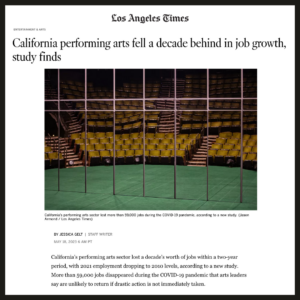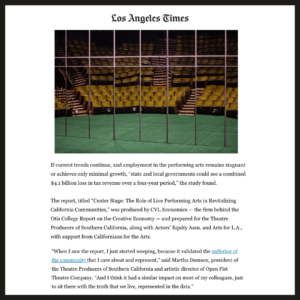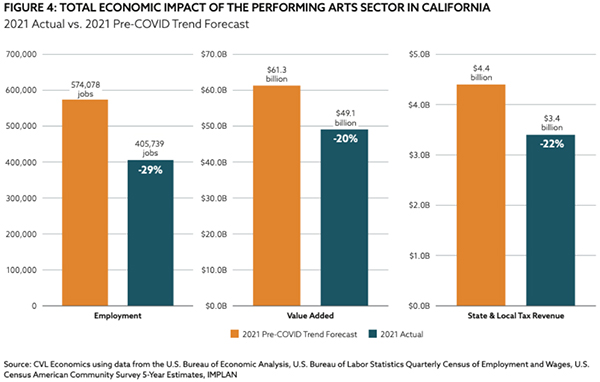Hi Arts Advocates,
Another month gone – 2024 is flying by! I hope you’ve found time for rest, self-love, and joy as we continue to push for a more equitable world and sustainable arts ecosystem. This month, I am pleased to announce that our first ever Progress Report has been released. It provides an overview of our progress from the last year and details the needs and concerns we’ve heard from the field. I encourage you to read it and take a moment to celebrate. There is always more to do, but it is important to recognize our wins and embrace the satisfaction before jumping back into the work.
Our report dives deeps, but there are a few additional updates this month:
Organizational Grant Program (OGP)
The Department of Arts and Culture’s flagship Organizational Grant Program (OGP) provides critical support and stability to arts and culture nonprofit organizations every year. Between 2021 and 2022 alone, 431 grantees served a total of 72.7 million people. Still, the OGP budget has remained generally static since 2007 despite the total number of grantees increasing by nearly 57 percent. Take action now to urge the LA County Board of Supervisors to prioritize an increase next fiscal year.
Arts Education
The first principal apportionment for Prop 28 was distributed on February 20. For those interested in details, you can review them here.
Arts for LA is working in partnership with Arts Education Alliance of the Bay Area to create a Prop 28 resource for CBOs, but in the meantime, if you’re an aspiring educator and want to learn more about existing pathways – start here. If you’re a school administrator curious about how to plan around Prop 28 – start here.
Last month, we welcomed Lindsey Kunisaki as our 2024 Laura Zucker Fellow and she will be studying the impacts of Prop 28 funding in schools. Her report will be released later this year.
Digital Discrimination
Last month, CA State Assemblymember Mia Bonta (D-Oakland) introduced AB2239, landmark legislation that would make California the first state in the nation to codify the Federal Communication Commission’s newly adopted definition of digital discrimination as California law:
The FCC defined “digital discrimination of access” as, “policies or practices, not justified by genuine issues of technical or economic feasibility, that (1) differentially impact consumers; access to broadband internet access service based on their income level, race, ethnicity, color, religion, or national origin or (2) are intended to have such differential impact.”
Statewide and Regional Networks (SRN) Grant Program
Last October, the California Arts Council proposed an end to the SRN grant program, which would have defunded arts service organizations across the state. In response, Arts for LA helmed a joint letter with regional partners to urge reconsideration. We also worked with our partners at Californians for the Arts to mobilize SRNs towards public comment. As a result of our collective action, the program was put back on the table and new guidelines were approved last week.
Applications open March 28 for organizations with budgets under $5M. Applicants may request up to $50,000.
This is more proof that advocacy works! Arts service organizations are the coral reef of California’s arts ecosystem and together, we rise. I’m endlessly grateful to be in this work with you. See you next month, Changemakers.
Always,
Ricky


